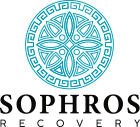Recovery from addiction is a life-changing journey that requires commitment, perseverance, and the right support. Whether you’re just starting your recovery process or have already taken steps toward sobriety, creating a sustainable plan is key. A robust aftercare program is one of the most critical components for ensuring lasting recovery.
Tips for Addiction Recovery
Learning how to recover from addiction is not a one-size-fits-all approach. Each individual’s journey is unique, and what works for one person may not work for another. However, there are some general tips that can help anyone struggling with addiction on their road to recovery:
Build a Strong Support Network
Recovery is rarely achieved in isolation. Surrounding yourself with a reliable and understanding support network can make all the difference in your success.
Why support matters:
- Encouragement – Having people who celebrate your progress can boost motivation.
- Accountability – Trusted friends, family members, or recovery peers can help you stay on track.
- Guidance – Others who have navigated recovery can offer valuable insights and advice.
Participating in group therapy, alumni programs, or peer support meetings can help expand your network. Additionally, family counseling can strengthen relationships with loved ones and foster understanding.
Prioritize Self-Care
Self-care isn’t a luxury—it’s a necessity in recovery. Rebuilding your life after addiction involves not only addressing past challenges but also nurturing your physical, emotional, and spiritual well-being.
Self-care strategies:
- Exercise regularly – Physical activity releases endorphins, boosts energy, and improves mood.
- Eat nutritious foods – A balanced diet helps repair the body and mind, promoting overall health.
- Practice mindfulness – Techniques like meditation, yoga, or journaling can reduce stress and improve focus.
Incorporating these practices into your routine is one of the most effective tips for addiction recovery and can enhance your overall quality of life.
Set Realistic Goals
Recovery is a process, not a race. Setting small, achievable goals helps you stay focused and avoid feeling overwhelmed.
Steps to goal-setting success:
- Be specific – Clearly define what you want to achieve, such as attending therapy sessions regularly or improving relationships.
- Celebrate milestones – Acknowledge your progress, no matter how small.
- Adjust when needed – Life can change, so be flexible and willing to adapt your goals.
By creating a roadmap for your recovery journey, you’ll gain clarity and confidence in your ability to succeed.
Identify Triggers and Develop Coping Mechanisms
Understanding what might lead to relapse is critical for maintaining sobriety. Triggers can be emotional, environmental, or social and vary from person to person.
How to manage triggers:
- Identify patterns – Pay attention to situations, emotions, or people that might tempt you to use substances.
- Create a plan – Work with a therapist or counselor to develop healthy coping strategies, such as deep breathing, journaling, or calling a trusted friend.
- Avoid high-risk situations – Limit exposure to environments or individuals associated with past substance use.
Learning how to recover from addiction involves not only avoiding triggers but also responding to them constructively when they arise.
Engage in Aftercare Programs
An aftercare program is an essential part of recovery. It bridges the gap between structured treatment and independent living, providing ongoing support and accountability.
At Sophros Recovery, our comprehensive aftercare planning includes personalized strategies tailored to your unique needs, helping you stay connected and confident in your recovery.
Call Sophros to Start Your Recovery Journey Today
Contact us today at 866.374.0541 or online to take the first step toward lasting recovery. You don’t have to face this journey alone—we’re here to walk with you every step of the way.







